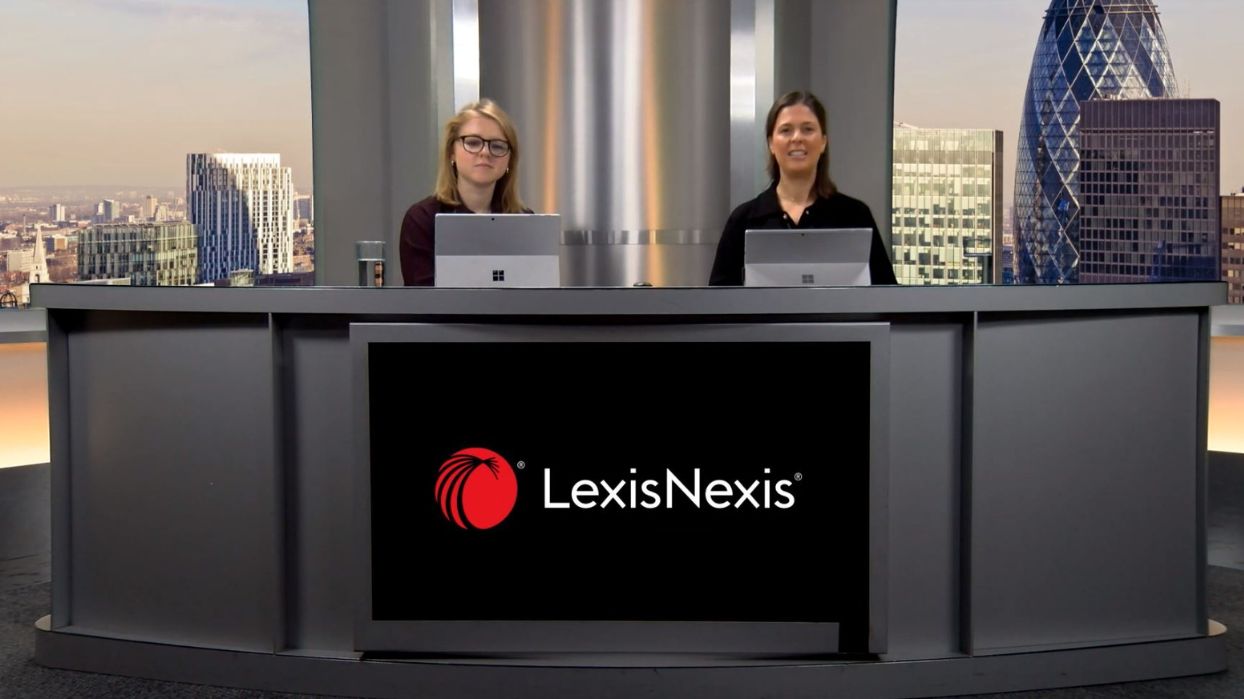Judith Swinhoe-Standen and Miriam Spencer recently led a LexisNexis webinar discussing the topic of forged wills. Drawing on the most recent case law on this topic, they explored the factors that will excite the court’s suspicion when it comes to forged wills and gave some practical tips for anybody wishing to allege that a will is a forgery.
Forged wills have recently come to the public’s attention because of some interesting revelations about the lengths fraudsters will go to in their attempts to inherit someone’s estate. The chain of events often begins with legitimate heir-finding companies that identify estates where there was no known will and no known beneficiaries. They track down distant relatives of the deceased who would inherit their estate under the intestacy rules. It is at this point that the relatives are informed of a will allegedly made by the deceased that names a person they don’t know – the fraudster – as both sole executor and sole beneficiary.
These wills look suspicious, but how can they be proved as forgeries?
Watch the webinar here (subscription required): Fraudulent/forged wills – CPD| LexisNexis® University
What is the law on forged wills?
There is no statutory definition of what a forged will is, but it would be fair to say it is a will that the deceased testator had no knowledge of and is thus in contravention of section 9 of the Wills Act 1837, which sets out the basic legal requirements of a valid will.
Usually, the burden of proof for a forged will rests on the party propounding the will to establish the will’s validity, but it is possible for the court to reverse the burden of proof. The standard of proof is the balance of probabilities.
Any will declared a forgery will be invalid. If there is an earlier will, that will should be committed to probate. If there is no earlier will, the intestacy rules will come into play.
Those responsible for the forged wills and anyone else who has misled the court could be committed for contempt of court, which can mean time in jail.
What will excite the court’s suspicion in a challenge involving a forged will?
The case of Khatun v Hasan & Anor [2025] EWHC 1658 (Ch) is a useful guide as to what factors will excite the court’s suspicion in a forged will case.
By way of brief background, the claimant was the only child of the deceased. She challenged the validity of the will on the grounds of want of due execution and fraud. In the end, only the fraud claim was pursued. The disputed will had allegedly been drafted by the deceased himself (a practising solicitor) and left his entire estate to the defendant. The defendant was not a relative of the deceased, but he argued they had a close relationship akin to that of a son or nephew. The burden of proof lay with the defendant to prove that the will had been validly executed and represented the deceased’s wishes.
The judge considered a variety of factors surrounding the disputed will, which can be divided into three categories: infelicitous, suspicious and inexplicable.
The infelicitous factors included:
- the will was a hybrid of precedent clauses with correct spelling and appropriate language, contrasted with custom provisions that used less legalistic language and contained spelling errors
- The spelling errors included the name of the deceased’s daughter
- The mechanics of the will did not work; it left the residuary estate to the defendant, but without a primary gift in relation to which the remainder can be residuary.
The suspicious factors included:
- there were no computer records, cloud data or metadata, etc, to support the claim that the deceased drafted the will on his own computer
- there were no documentary records whatsoever in relation to the execution of the will
- there was a delay in the will being produced after the deceased’s death, as it was being stored by a friend who was not a lawyer, despite the fact that the deceased usually entrusted all his legal work to a certain firm of solicitors, and
- the defendant’s evidence as to why the deceased would bequeath his entire estate to him went “nowhere near to evidencing the very close relationship of which he spoke” and consisted of a few WhatsApp messages.
There was only one inexplicable factor, which was that the will made provision for the defendant in England, Bangladesh and Pakistan. However, there was no evidence that the deceased ever had assets in Pakistan. The judge considered the reference to properties and assets in Pakistan to be an “inexplicable mistake” for the deceased to have made.
Expert evidence
Forged will cases tend to include substantial expert evidence. The case of Patel v Patel [2017] EWHC 133 (Ch), for example, involved a forensic document examiner and handwriting expert, a forensic chemist and document analyst and an expert in ink testing. Collectively, these experts showed that:
- the deceased’s signature on the will was genuine, but did not date from the date of the will
- the deceased’s signature had faded to a greater degree than the witnesses’, demonstrating that they had not all signed the will at the same time, and
- the deceased’s signature was on the paper before the text was printed.
Gathering evidence in a forged will case
Because the burden of proof in a forged will case is on the party propounding the will, those wishing to challenge its validity have to be quick to allege that the will is a forgery or has been obtained fraudulently.
Even if the will appears suspicious on the face of it, it is still necessary to gather compelling evidence and explain the suspicions in a way that convinces the court. Although the standard of proof is the usual civil standard of the balance of probabilities, in reality, forgery is a serious allegation, so you often need to go the extra mile to prove a fraud. This can be a race against the clock as the fraudster will likely want to administer and inherit the estate as soon as possible.
As a first step, it is worth checking if the will has been executed properly. Fraudsters may be clever in some ways, but there is no guarantee that they will have researched the law on the creation and execution of wills. For example, if the will only has one witness, then you can argue that there was a lack of due execution, although you may still want to argue forgery in the alternative.
Next, you might be able to identify some easy red flags, such as incorrect paragraph or page numbering in the will or incorrect addresses. These are not in themselves proof of forgery, but they can add relevant context.
Will challengers might then need to apply some detective skills to identify more subtle evidence of forgery. For example, perhaps the will was written in a font that did not exist at the time the will was allegedly executed. Or maybe the metadata shows a mismatch between the date of creation of the document and the alleged date of execution.
They might then consider the wider context. Perhaps a spouse, if they had survived the deceased, would have been inexplicably disinherited by the will as it stands. Perhaps this is a homemade will purportedly executed by a testator who was meticulous about managing their affairs with professional assistance, with no explanation as to why they apparently decided to make the will themselves. Perhaps neighbours have noticed somebody repeatedly visiting the deceased’s house at a time that coincides with the date of the will.
Top tips
If you think a will is forged, apply these top tips:
- In your initial review of the will, check the usual issues: is this the deceased’s usual signature? Have the execution formalities been complied with? Who are the witnesses?
- When gathering your evidence, conduct background checks on the deceased’s circumstances and relationships: are the terms of the will unusual or radically different from previous wills?
- Be tactical: lodge a caveat if probate has not yet been granted, consider whether there are any other explanations for the will. Manage your client’s expectations, as the courts are slow to find forgery without strong evidence.
Watch the webinar here (subscription required): Fraudulent/forged wills – CPD| LexisNexis® University
You can find further information regarding our expertise, experience and team on our Trust and Probate page.
If you require assistance from our team, please contact us.
Subscribe – In order to receive our news straight to your inbox, subscribe here. Our newsletters are sent no more than once a month.





